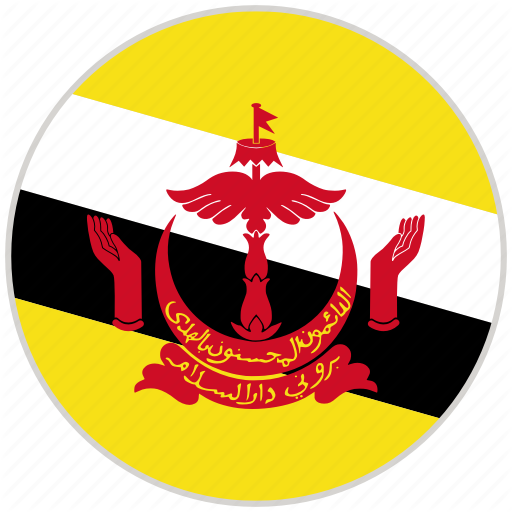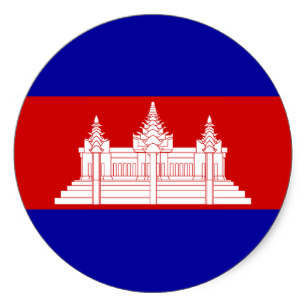The ASEAN Cooperation Mechanism is initiated and enhanced by the leaders at the highest level from ASEAN nations. Since the multilateral cooperation experiences are still absent among the ASEAN nations, great divergences exist among them, and mutual trust is lacking among some countries due to territory disputes and historical enmities, the leaders from the ASEAN nations decide to facilitate the establishment of East Asia Regional Cooperation Framework in a moderate way. The fruit of this effort is the Informal Summit of Leaders from ASEAN and China, Japan and ROK. As far as the form is concerned, the Summit is informal; As far as the structure is concerned, it comprises the Summit Meeting of Leaders from All the Member States, the Individual Meeting between China, Japan and ROK on the One Hand and ASEAN on the Other, and Informal Meeting among China, Japan and ROK. As far as the content is concerned, the discussion focuses on the principles of East Asia cooperation, which don't exert the bonding power upon the member states.
The 1st ASEAN Plus 3 Summit
On the afternoon of December 15, 1997, the fist Informal Summit of ASEAN and China, Japan and ROK was convened in the Palace of the Golden Horses in Kuala Lumpur, well-attended by the leaders from 9 ASEAN nations (Until then Cambodia hadn't entered into ASEAN, so there was only nine nations belonging to ASEAN) and China, Japan, and ROK. The leaders present at the meeting discussed the global relationship especially Asian-European relationship and the coordination and cooperation of international economy. The meeting concentrated on envisaging the prospects of East Asia oriented towards the 21st century, deepening the economic links in East Asia region and maintaining the stable economic cooperation in the East Asia. The President of PRC Jiang Zemin attended the meeting, and delivered an important speech entitled “Join Hands in Cooperation and Build a Future Together". While he mentioned the lessons left by the Financial Crisis sweeping the Southeastern Asia, he stressed that constant efforts should be exerted to strengthen the cooperation of East Asia, with a view of guaranteeing the fundamental interests of all the people in East Asia, and promoting the glorious undertaking of peace and development for the whole human being.
In this regard, he proposed that “we should stick to the principles of mutual respect, participation on equal foot, mutual benefit and reciprocity, and common development; we should intensify economic and technological cooperation, especially hi-tech cooperation, set up a rational economic structure in the region and bring about a non-exclusive and non-discriminative model of economic cooperation which can facilitate countries to make up for their deficiencies by drawing upon other's advantages and strike a balance among different interests; we should engage in friendly dialogues and consultations to build up confidence, broaden agreement, and seek common ground while putting aside differences, address differences properly so as to ensure regional peace and stability." After the meeting of 12 state leaders, ASEAN held a leadership meeting with China, Japan, and ROK, and delivered three Joint Statements respectively. On the morning of December 16, 1997, the President of PRC and the leaders from 9 ASEAN nations held China-ASEAN Informal Summit, at which the two sides exchanged their extensive and in-depth views on the bilateral relations, and whereby delivered the Joint Statement, finalizing the principles of dealing with the bilateral relations and pledging to enhance the dialogue and cooperation mechanism, agreeing to strengthen the cooperation among various regions and international organizations, and establishing the partnership relations of good-neighborliness and mutual trust between China and ASEAN oriented toward the 21st century. During the meeting, China's Vice-premier and Foreign Minister Qian Qichen stressed that China was much concerned about the plight of Southeastern Asia, and was considering providing the same fiscal assistance for Indonesia as for Thailand. China's government showed its determination to promote the cooperation in East Asia through its practical endeavors.
The 2nd ASEAN Plus 3 Summit
The 2nd ASEAN Plus 3 Summit
On December 16, 1998, the leaders from ASEAN and China, Japan and ROK convened in the International Conference Center in Hanoi, the capital of the Vietnam for their Second Informal Summit. The participating leaders reviewed the political and economic situation in the East Asia in the past year, stating that the cooperation in various areas would be further expanded so as to surmount the plight caused by the Financial Crisis.
The Vice-president of PRC Hu Jintao stressed in his speech that it was necessary for the Southeast Asian countries to exert their efforts in three aspects as follows: 1) to further build up the confidence about the prospect of the East Asian development; 2) to further expand the cooperation of mutual benefits in East Asia, and “call on the East Asian countries to exchange the views on such macroeconomic issues as financial reform"; 3) to actively get involved in the reform and adjustment of the international financial system. Hu Jintao proposed a dialogue at the level of vice- financial minister and vice-president of central bank among ASEAN and China, Japan and ROK, “and to form an Expert Group at a proper time if necessary, which is devoted to the in-depth research of the concrete means to regulate and control the international flowing capital". He showed China would stick to the policy of keeping renminbi currency stable, and decided to donate 200,000 US dollars to “ASEAN Fund". Japan's Prime Minister Junichiro Koizumi also announced that Japan would provide 5 billion USD loans with three-year free interests. Then the Vice-president of PRC Hu Jintao attended the informal meeting between China and ASEAN leaders, and demonstrated China's stance towards the South China Sea. On behalf of ASEAN, Vietnam showed the appreciation for China's reiteration to deal with the disputes through dialogue and consultation. Since many East Asian countries were stranded in the financial crisis, whose impact, lessons and challenges made the East Asian countries come to realize the importance and necessity of strengthening economic and financial cooperation. China and Japans' commitment to take effective actions goes a long way toward the economic recovery of all the ASEAN nations. Through this informal leadership meeting, the ASEAN countries have further expanded the consensus and heightened the awareness of cooperation and built up the confidence and determination to overcome the financial crisis.
The 3rd ASEAN Plus 3 Summit
The 3rd ASEAN Plus 3 Summit
On November 28, 1999, the 3rd Informal Summit of ASEAN and China, Japan and ROK was held in Manila International Center. At this meeting, the leaders from ASEAN nations and China, Japan and ROK agreed that oriented towards the new century, the East Asian countries need to strengthen the mutual understanding, trust and cooperation. The pivot of the East Asia cooperation shall be placed in economic, financial and scientific and technological areas.
Some countries hope to strengthen the coordination and cooperation in the financial area in the East Asia through various dialogue mechanisms, including “10+3" dialogue mechanism among the financial and central bank leaders initiated by China. The meeting discussed whether the Asian Monetary Fund should be founded or not, exclusively addressed the Code of Conduct of Parties in the South China Sea and at the same time declared to support the fight against the splittism in Indonesia, in case the nation would break up because of racial and regional clash. China's Premier Zhu Rongji stated China's propositions about the direction and area of East Asia cooperation, suggesting the East Asia cooperation of mutual benefits shall be deepened in the areas of economy, finance, and science and technology. When the meeting wound up, the participating leaders delivered the Joint Statement of East Asia Cooperation, claiming that the East Asia would promise tremendous potentials and broad prospects through the close mutual connection and cooperation among all the nations in the region. The Statement agreed to facilitate the dialogue and cooperation, and promote the mutual understanding, trust and good-neighborliness relationship, and boost the close cooperation in the areas of common interests and concerns. The Statement also emphasized that the leaders of 13 nations would commit themselves to working together in various fields and at all levels, and to continuing to advance the present consultation and cooperation. Being an important component of East Asia cooperation, this Statement pointed out the direction and focus of the regional cooperation in East Asia. At the China-ASEAN Informal Summit held later, Premier Zhu Rongji put forward the proposals and suggestions that China should strengthen the partnership of good-neighborliness and mutual trust in the new century, claiming China would continue to deepen the dialogue and cooperation in various areas and at all levels with the ASEAN nations and organizations.
The 4th ASEAN Plus 3 Summit
In 2000, at the turn of the new century, ASEAN nations took momentous steps in politics and economy in the spirit of the Joint Statement of East Cooperation. In this regard, the First Financial Ministers' Meeting, the First Economic Ministers' Meeting and the First Foreign Ministers' Meeting were convened respectively. Besides, on November 24, at the ASEAN Informal Summit, the leaders adopted “Initiative for ASEAN Integration (IAI)," and signed the Framework Agreement on “E-ASEAN". This Agreement outlines the basic framework for the realization of the free trade, service and investment in the area of information communications among the ASEAN nations, thus becoming a milestone in the course of ASEAN's economic development. As China and ASEAN nations signed and delivered the framework documents concerning the promotion of the bilateral cooperation, the cooperation of the two sides has entered into a new stage. The progress in the above-mentioned regional cooperation led the ASEAN leaders to conceive the following two “plans": 1) to establish the East Asia Community through the incremental efforts; 2) to establish a East Asia Free Trade Zone or Free Investment Zone. In this way, the regional cooperation in East Asia has gained momentum. On November 25, the Fourth 10+3 Informal Summit was hosted by Singapore.
The participating countries discussed thoroughly the prospects of East Asia cooperation, and how to strengthen the cooperation within the framework of 10+3 and 10+1, and reached the consensus in a broad sense. They agreed to make joint efforts to facilitate the establishment of Bilateral Currency Swap Network in East Asia in a gradual and orderly manner. Japanese Prime Minister advanced the “Three ASEAN Principles" with the view of promoting the regional cooperation. During the meeting, the leaders from three countries also held the Second Informal Breakfast Meeting and reached a common understanding about holding a meeting at a regular period, and making joint research into the cooperation in trade and investment areas between China, Japan, ROK on the one hand and ASEAN nations on the other and as well as among the former three countries. Premier Zhu Rongji stressed that the cooperation in East Asia should aim at “development", and “10+3" mechanism should turn into the main channel for the regional cooperation in East Asia, and the framework of finance, trade and investment cooperation should be gradually established so as to realize the more extensive integration of the regional economy. The work has been done to enhance the trust and clear the doubt about ASEAN countries. It is also stated that China and ASEAN countries are not in rivalry and China's accession into WTO will bring about greater opportunities for the cooperation between China and ASEAN.
The 5th ASEAN Plus 3 Summit
On November5-6, 2001, the Fifth Leadership Meeting of ASEAN and China, Japan and ROK was held in Brunei. The leaders attending the meeting discussed the report of the East Asia Vision Group and exchanged extensive views on strengthening exchanges and cooperation in all fields in East Asia. China has submitted “Follow-up Action Report" to the meeting, hoping that it would be a useful reference to all the other parties. Premier stressed at the meeting the necessity and urgency of strengthening the cooperation on the part of the ASEAN countries under the present context, and pointed out 10+3 mechanism should be pushed forward up to an upper level on the principle of mutual benefit, incremental progress and stressing on practical results. The 10+3 Cooperation Mechanism should gradually facilitate the dialogue and cooperation in the areas of politics and security, especially with the non-traditional security as the starter, while laying emphasis on the economic cooperation.
It is our hope that the East Asia cooperation in the new century, will build on the existing foundation, focus on future development, improve the operation mechanism and enrich the contents of cooperation so as to advance our cooperation to a new high level. In this regard, China's Premier Zhu Rongji proposed five cooperation initiatives for the East Asia: 1) to further define the orientation and goals of the cooperation. 2) To promote a coordinated development of the 10+3 and 10+1 cooperation. 3) To carry forward financial cooperation. 4) To galvanize exchanges among people of broad sections of society. 5) To conduct dialogue and cooperation in the field of non-traditional security. These proposals are highly appreciated by the other participating leaders.
The 6th ASEAN Plus 3 Summit
On October 4-5, 2002, the leaders from ASEAN and China, Japan and ROK convened in Phnom Penh, the capital of Cambodia for their Sixth Informal Summit. The leaders attending the meeting discussed how to promote the East Asia cooperation among ASEAN and China, Japan and ROK. China made many significant proposals at the meeting as regards to strengthening the cooperation with ASEAN and Japan and ROK respectively, which turned out to be very important contributions to the East Asia cooperation. China's Premier Zhu Rongji also proposed to convene a 10+3 Ministerial Meeting on Combating Transnational Crimes, which gained a unanimous appreciation from the other participating countries. This indicates 10+3 cooperation has comprised another new aspect, and thus the first step has been taken to activate the political and security dialogue and cooperation. He also advocated holding “East Asia Mayors' Forum" so as to expand the coverage of East Asia cooperation and arouse the active participation by all the circles of the common people.
The 7th ASEAN Plus 3 Summit
From October 6 to 8, 2003, the leaders from ASEAN and China, Japan and ROK convened in Bali, Indonesia for their 7th Informal Summit. The leaders discussed the direction of the future development
of 10+3 and explored ways to enhance the cooperation among their countries in various fields in a friendly and frank atmosphere. At the meeting, Premier Wen stressed that deepening 10+3 cooperation should abide by the principles of negotiating on an equal footing, stressing on mutual benefit and win-win result, progressing in a step by step manner, and openness and inclusivenss. He also made four proposals as follows: to study feasibility of East Asia Free Trade Area; to promote East Asia financial cooperation, to strengthen political and security dialogue and to expand social, especially cultural, scientific and technological cooperation. It is obvious that leaders from East Asia demonstrate their determination to make great efforts to promote the mutual coordination and regional cooperation.
The 8th ASEAN+3 Summit
The 8th ASEAN+3 Summit was held on Nov.29 2004 in Vientiane. The meeting, with a theme of “Strengthening ASEAN+3 Cooperation", was attended by Heads of State/Government of ASEAN, China, Japan and the Republic of Korea. They exchanged views on regional and international political and security, and economic issues, and they also discussed ways and mechanisms to strengthen the ASEAN+3 cooperation and its future direction. Premier Wen Jiabao spoke highly of the progress made in the process of 10+3 cooperation, and to make East Asia cooperation more comprehensive and intensive, he put forward seven proposals, including “ to push steadily for the establishment of the East Asia Free Trade Area (FTA)'," to deepen financial and investment cooperation" and “to expand security dialogue and cooperation". All the participants agreed at the meeting that the establishment of an East Asian Community is a long-term objective of East Asian cooperation and that the first East Asian Summit(EAS) will be held in Malaysia in 2005. The two important agreements show that East Asian cooperation will enter a new phase.
Informal Summit of ASEAN and China, Japan and ROK Leaders is a significant pioneering move in East Asia history. It opens a new chapter for East Asia cooperation, reflects the common aspiration for promoting the regional peace and development on the part of all the Asian countries, and is of far-reaching significance to the future development of all the East Asian countries. Despite the focus on economic cooperation, the Informal Summit begins to concentrate on the political and security cooperation. The “10+3" Summit of ASEAN and China, Japan and ROK has become a major mechanism for the East Asian countries to discuss the political, economic, security and social issues.











.png)



.png)




